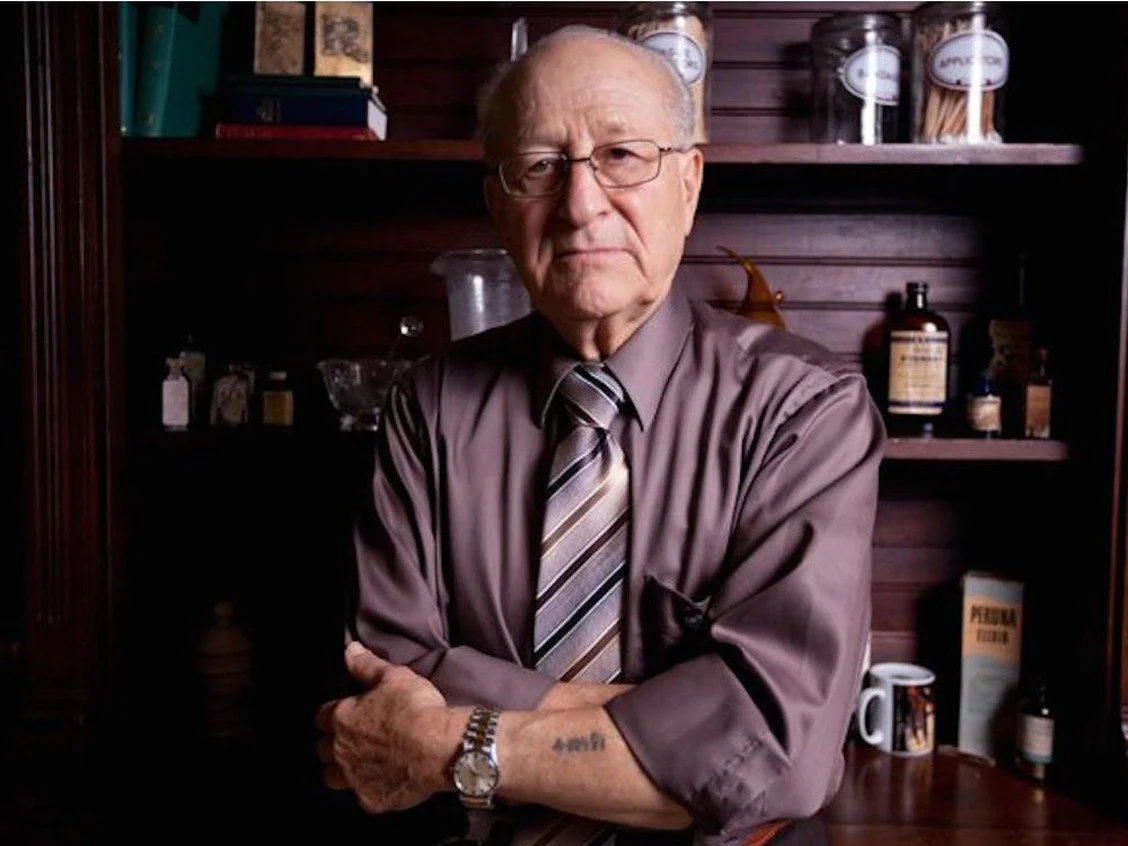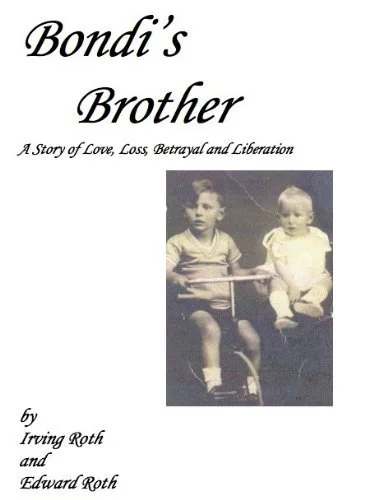BIOGRAPHY OF IRVING ROTH
Irving Roth was born in Kosice, Czechoslovakia, in 1929. He grew up with his parents and older brother Bondi in the city of Humenné, where his family built a successful lumber business. In 1938, Irving began to notice changes following the Nazi invasion of western Czechoslovakia. At school, his class was told to chant the German national anthem every morning and signs appeared in the park saying: “No dogs, no Jews.” By the summer of 1939, Roth was not allowed to attend public school and his father was forced to hand over his business to a non-Jew.
In 1941, the family watched as thousands of Jews were rounded up from their town and deported. Irving’s father’s job protected them, but after the Nazis temporarily detained Irving’s grandparents, the family decided it was time to leave, managing to escape to Hungary, where they hoped they would be safer. Irving, his brother, and his grandparents moved in with some relatives in the town of Zdana, while Irving’s parents settled in Budapest, where his father could find work.
In the spring of 1944, the Nazis started deporting the Jews of Zdana. Irving, age 14, along with his brother, grandparents, aunt, and 10-year-old cousin were all arrested, herded onto cattle cars, and sent to concentration camp Auschwitz-Birkenau. Upon arrival, the brothers were separated from the family, the rest of whom were soon murdered in gas chambers. The brothers were used as slave laborers, doing heavy manual labor in gravel pits and working in the fields caring for horses, all on a starvation diet of only 400 calories a day.
The brothers survived until early in 1945 when the Nazis, aware that the Red Army was approaching, forced them and the other surviving prisoners to march through the Polish winter to Buchenwald. Upon arrival at the new camp, the brothers were separated. Irving never saw Bondi again. Finally, on April 11, an American GI stepped into Irving’s barrack and began handing out chocolates. Roth later said, “You may not know what the Messiah looks like, but I do.”
The newly freed Roth, 16 years old and 5 feet 8 inches tall, weighed only 75 pounds. Amazingly, Irving was able to reconnect with his parents. His father had come down with typhus while in Budapest and was saved by a nurse, who hid Irving’s parents in her one-bedroom apartment. After the war, they returned to Hummene where Irving found them. Irving and his parents emigrated to the US in 1947, where Irving restarted his education. He graduated from high school, served in the Korean War, went on to college and became an electrical engineer.
Irving never forgot what he had gone through and how it had started. He spent much of his life teaching people about the Holocaust and the dangers of antisemitism. He is perhaps most well- known for creating the Adopt-a-Survivor program, which paired Holocaust Survivors and their descendants with students in an effort to foster meaningful relationships across generations and generate deep discussions, rather than the more common brief interaction.
He went on to serve as one of the founders of HMTC, taking on the role of Director of Education after the organization was founded in 1992. He was also the Director of the Holocaust Resource Center at Temple Judea of Manhasset, an adjunct professor at the University of Maine, and an active participant in the March of the Living.
Irving was quiet, wise, insightful, generous, and caring. His humanity alone spoke volumes. He told his own story of survival and the lessons about the risks of unchecked hatred and antisemitism to audiences around the world. HMTC is proud to sustain his legacy.
Read Irving Roth’s first-hand account of what he experienced during the Holocaust, as his family tried to find safety and then was ripped apart by the Nazis.
See what others say about this amazing book:
“…I could not put it down. The combination of the story with its lucid writing was riveting. The descriptions were so vivid that I imagine being there, in spite of the fact that the horrors are presented with restraint. The miracle is not just physical survival, but the embracing of life, hope and Judaism. Bondi’s Brother is a superb diary of hope and memory that will benefit all who read it and particularly those who do not have the benefit of meeting a survivor.”
Rabbi Lee Buckman, Headmaster, Jewish Academy of Metropolitan Detroit
“…it gripped me almost immediately. I can’t say it gave me pleasure, but it helped me understand. The narrative moves from the warm, sheltered family life of a small boy in a religious shtetel to the horror of becoming a non-person, struggling to survive the death camps. A gripping and painful story, and in the end, I felt it to be wonderfully life affirming.”
Chaya Burstein, Award-winning author of children’s books
“Bondi’s Brother is a profoundly moving book. The ability to affect the reader does not derive solely from the horrific experience during the Shoah. The author’s skill at drawing the reader into the world of Bondi’s Brother makes him feel that he is personally dealing with the events depicted as they envelop the Jews of Hungary. In a world that has seen the publication of countless Holocaust memoirs, Bondi’s Brother is destined to occupy a special place.”
Rabbi Martin S. Cohen, Ph.D., Author, lecturer, scholar and spiritual leader of Shelter Rock Jewish Center, Roslyn, New York



